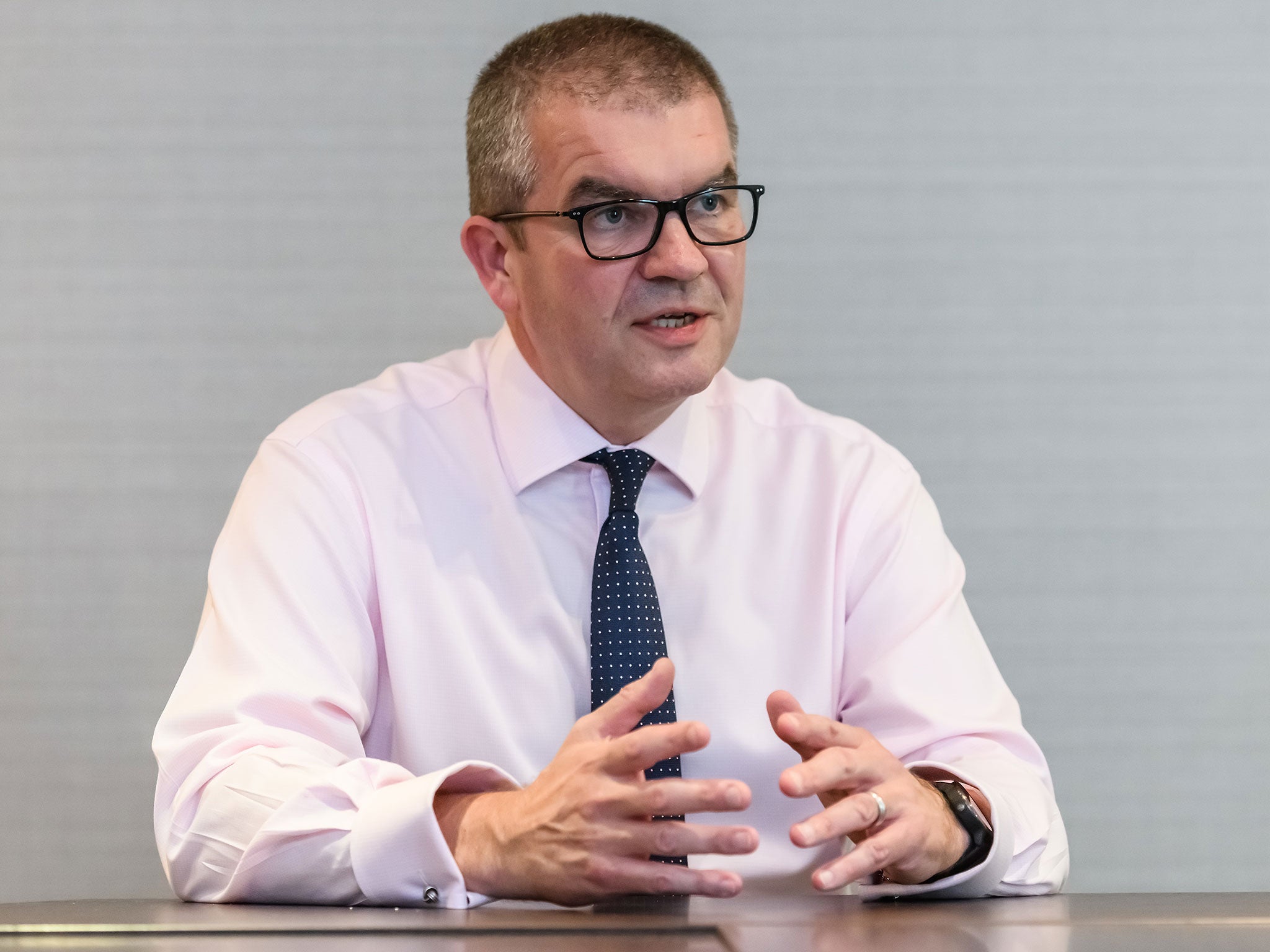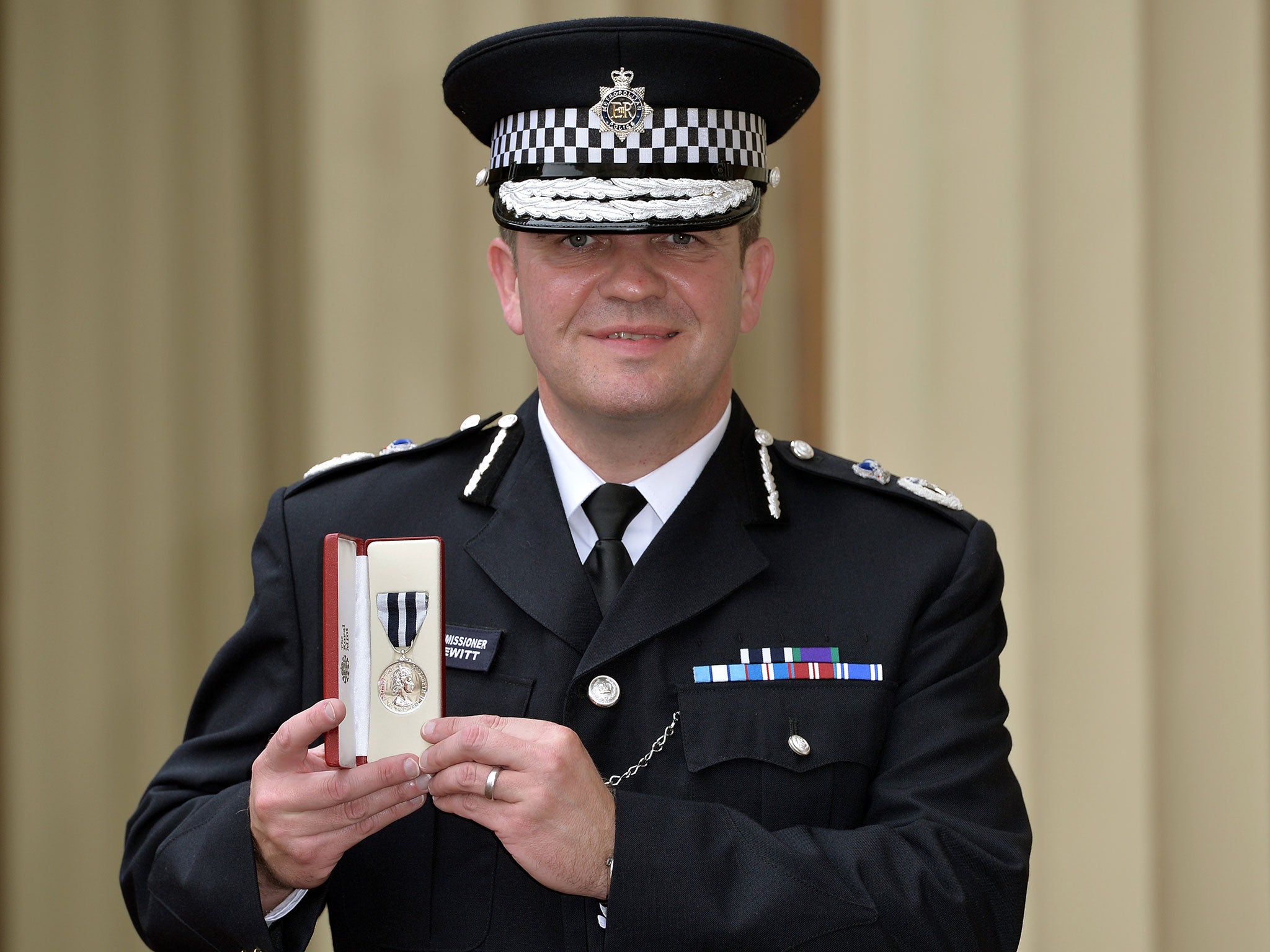The police chief who believes arrests aren’t the key to fighting rising crime
Exclusive: While Boris Johnson champions ‘tough justice’ measures, one of Britain’s most senior police chiefs tells Lizzie Dearden prevention must be prioritised to keep people safe

Your support helps us to tell the story
From reproductive rights to climate change to Big Tech, The Independent is on the ground when the story is developing. Whether it's investigating the financials of Elon Musk's pro-Trump PAC or producing our latest documentary, 'The A Word', which shines a light on the American women fighting for reproductive rights, we know how important it is to parse out the facts from the messaging.
At such a critical moment in US history, we need reporters on the ground. Your donation allows us to keep sending journalists to speak to both sides of the story.
The Independent is trusted by Americans across the entire political spectrum. And unlike many other quality news outlets, we choose not to lock Americans out of our reporting and analysis with paywalls. We believe quality journalism should be available to everyone, paid for by those who can afford it.
Your support makes all the difference.“I am not in a place that’s just ‘lock everyone up’,” says Martin Hewitt, one of Britain’s most senior police chiefs.
“We are part of a system that is designed to protect people, to stop people being victimised and equally to stop people offending. I would in every circumstance prefer to be in a prevention space than arresting and prosecuting.”
The chair of the National Police Chiefs’ Council (NPCC) strikes a markedly different tone to Boris Johnson’s new government, which has pledged to create thousands more prison places and keep offenders in jail for longer.
Downing Street devoted 26 pages of proposals unveiled in the Queen’s speech last month to “strengthening the justice system” with a raft of new laws.
But there was little mention of prevention or tackling the root causes of crime, which critics say have been exacerbated by years of austerity.
Sitting down with The Independent in the NPCC’s London offices for his first major interview since taking up his post, Mr Hewitt makes clear that prevention will be a core focus of his tenure.
“Of course there is a policing responsibility there, but actually what we’ve really got to do is get everything else working to stop [violence] being the life choice made by a 14-year-old boy,” he says.
“The simple fact is that the services that are there to assist with that do not have the capacity, and then police officers turn up.”
Mr Hewitt believes that to ultimately reduce the demand on Britain’s police, who have lost more than 20,000 officers since 2010, the drivers of crime need to be addressed.
He wants to see greater investment in mental health, community and youth services in order to prevent people from slipping into addiction and crime.
An increasing amount of police work is also driven by mental health crises and missing person reports, where officers are forced to “step in” to roles previously performed by the NHS and councils.
“I think that has to be looked at in the round as to how the state provides the right services to protect people from getting involved in what are often dangerous and criminal activities,” Mr Hewitt says.
He is clear that the 20,000 new police officers promised by Boris Johnson will not solve the causes of rising crime, or falling prosecutions.
The NPCC, which brings together chief constables from all forces in the UK and coordinates national operations and reforms, was not given advance notice of the proposal.
Mr Hewitt says that although Sajid Javid had been making the case for a substantial injection of police resources as home secretary, he had seen no specific proposals until he was reading news coverage of the Conservative leadership race in July.
“The point where I thought ‘this is definitely coming’ was when we ended up with the two contenders left in the leadership race, Jeremy Hunt and Boris Johnson, both committing to a 20,000 uplift,” he recalls.
“At that stage we started very seriously working with colleagues in the Home Office saying if this does come, and it looks like it will, what do we need to do to start setting this up?”
After almost a decade of “how do we save, how do we reduce”, police chiefs were now faced with a new problem – how to replace nine years of lost staff in a third of the time.
Mr Hewitt estimates that it may take up to half a million applicants to end up with 20,000 extra officers, once vetting, the training process and retention is taken into account.
He admits there is an “enormous amount of work to be done” to reach the target without lowering the bar for entry.
“But it’s a good problem to have,” he adds. “It gives us a real opportunity about the kind of service we can create.”
Mr Johnson was heavily criticised by some police officers for using new recruits as a backdrop for a political speech in September, sparking a row with West Yorkshire Police after the prime minister continued speaking despite a woman collapsing behind him.
Mr Johnson has made crime and justice a cornerstone of his early leadership, and the Conservative Party heavily used the 20,000 officer pledge in election campaigning.
While insisted that policing had not been “politicised” and remains operationally independent, Mr Hewitt concedes that he and other senior figures work in a “political environment”.
“It would be naive to think we’re not,” he adds. “Politicians run the country, decide on policy directions and ultimately provide the funding for everything that we do.”
Mr Hewitt also has to deal with the internal politics of British policing, which can bring the NPCC into public conflict with officers’ associations that push for the interests of their respective ranks.

But the former British army officer is confident in his ability to tussle following a career that saw him serve in Northern Ireland, Germany and Cyprus before becoming a police officer in 1993.
He admits that he was drawn into the armed forces as by the prospect of “action and adventure”, adding: “I did look at the police as well at the time but if I’m honest, as a 19-year-old, the army looked more fun.”
Mr Hewitt trained at Sandhurst and served with the Royal Artillery for five years, but did not fight in a “proper war” and moved into policing in 1993.
“At that point I wanted to go where every single day we’re not doing exercises, we’re not training,” he says. “Ironically shortly after I left it got very operational and has been for a long period of time, which was different.”
The 53-year-old Charlton fan, who lives in southeast London with his wife and four children, now describes himself as “mostly a police officer and part-time taxi driver” for his teenage sons and daughters.
He has now been a police officer for 27 years, serving in Kent Police and then moving to Scotland Yard.
He rose to the rank of assistant commissioner and was awarded the Queen’s Police Medal before becoming NPCC chair in April last year.
Mr Hewitt acknowledges that he took up his current post during a “lively period” for British policing, seeing the 20,000 pledge, a new government, Brexit, royal commission on the criminal justice system and an upcoming spending review.
“We have just had investment in policing which is positive, there has been investment in the Crown Prosecution Service, which is positive,” he says.
“But we need to look at the entire system – you can’t see it as individual bits that happen to collide, because a failure by us can have an impact on all the other parts.
“Fundamentally, this has got to come back to what is going to have the most impact, keep people safe and make them feel safe.”